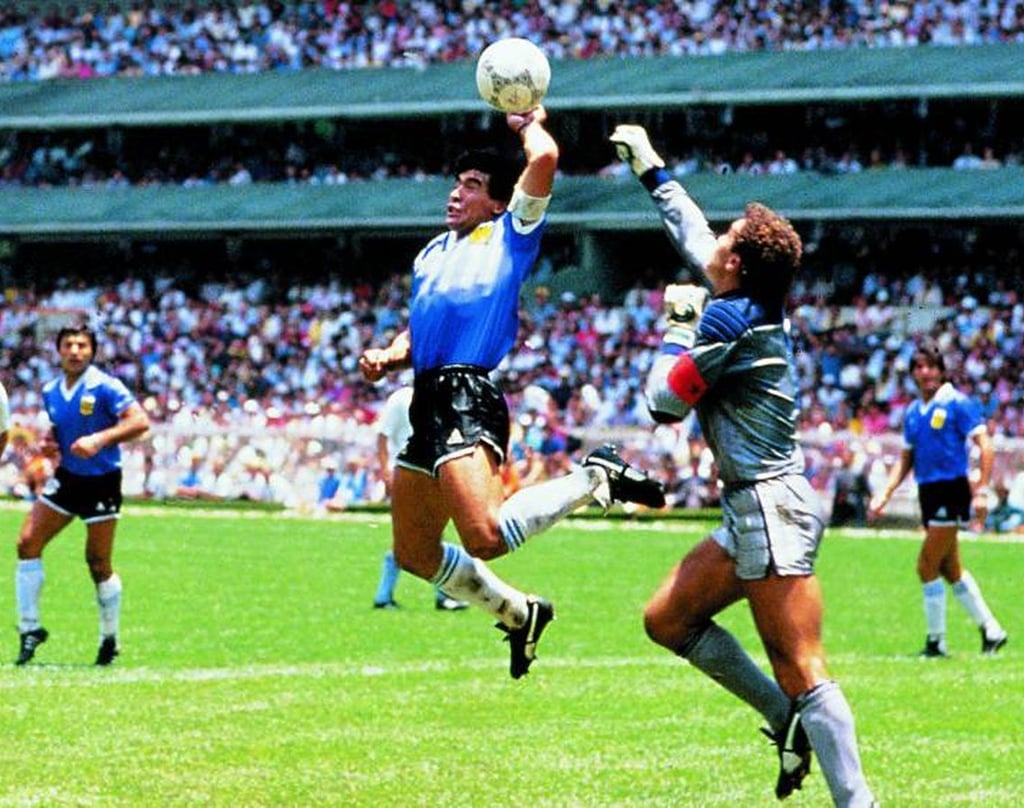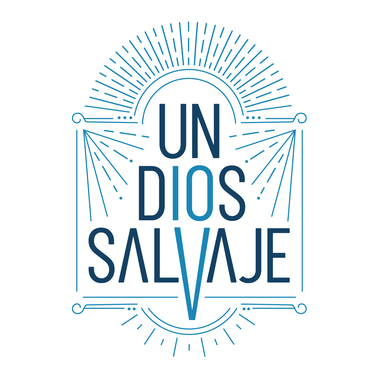Orphanhood and Glory
Full reading of the essay by Horacio González, part of the cultural project Un Dios Salvaje.


Perhaps man is a useless passion, as a philosopher once said. When that philosopher died, a shock went through the cultural environments of Europe and Latin America. Maradona died, and the commotion was great, different, and absorbed. We cannot measure it. It could not be a useless passion. But it was not possible to identify why. He was an essential figure who could not represent us all because the whole is always limited by our incomplete imagination. But the closest thing to that incomplete representation which now inconceivably hurts us, there is no doubt that it bears the name of Maradona. An undone name that became full in a transcendental void that reemerged like a strange halo that always fell and in its fall contained a new resurgence.
The hero who was once a prisoner of the voracity of photographers, who lived through hospitalizations and radical cures, who was the protagonist of excesses that no one felt in a position to question, acted under a glorious background, Apollonian when he was Dionysian, and mysterious when he said goodbye again and again to soccer, awakening a storm of love tattooed in the popular lament, that Maradoooo, Maradoooo, that by stretching the most astute vowel, which closes on itself without additions, guaranteed the exact combination of air, asphyxiation, and wind. When Maradona is shouted suspended on the o, it becomes longer and transmutes into u. The mischief of the vowels in the stands where when you want, there is versification and when not a languid lament. Maraduuuu... the glorious and orphan prayer. Maraduuuu.
As Gardel was the song, Maradona was soccer. But both were mass idols. Therefore, cinema in one and television in the other was fundamental. The dark origin, the family without lineage, the grayish poverty, the dirt street, and the luminosity extended to the mythology of the grand spectacle where each moved to carry what they were not aware of. Now it seems that they are approached, like strange lit pyres, at different times and styles. There is a way in which each one had lodged in a secret and multitudinous concavity, apparently silent but composed of a latent love that, without us realizing, was waiting to be the deathbed. From that solitary moment of abandonment, the sanctuary that was already being prepared on soccer fields all over the world would emerge.
Gardel sang the tango song of the coup of the 30s. It did not matter. Maradona tattooed Che on his arm and the goal against the English -both in their own way- are guerrilla goals. But the political commitments seem lateral, without being a guerrilla. They are more critical of Maradona, who politicized his tattooed body or turned politics into a tattoo. A tattoo of what? Of a certain rebelliousness of a primordial mud that he sent upwards, be it Fidel, Chávez, or Kirchner, with a fidelity that was maintained more than that of many politicians. He also showed himself with various world authorities as an ineffable totem, whose guarantee was a couple of dribbles interpreted as the necessary feints of the unredeemed homeland. He launched his phrases with outbursts of purity as formidable as they had come out of an abrupt religiosity. "La pelota no se mancha"[The ball is always clean], and there he looked like a monk kissing his host, with the stadium ululating that "oooo..." that sank like a languid and premonitory letter in the boiling stands.
He knew his legend. He spoke on television about Mauricio Macri, who says "mire" to avoid saying "mud.” The persistent idea was to go from the mud to the palace and from the palace to the medical collapse, and from there, to ask Fidel Castro how it would be possible to unite Latin America. He moved among metaphorical constructions that his sensibility had registered, perhaps listening to the many journalistic voices that followed him like a swarm, and he reused those words. He fulfilled roles assigned to him, and he also knew how to mock his own performances. When he realized that those magic goals were already engraved in the television museum, the prestidigitation of the dodge, the dry braking without losing control of the ball, he sensed that those frescoes of Massacio or Tintoretto that he painted on the field were part of a story that no sports reporter -of the many that accompanied him, renaming him in a thousand ways- possessed, but that he was going to handle them himself. And he set out to investigate the world; as if he were an archeologist or a dislocated political scientist, and so he met and repudiated powers, supported the left with a political conscience that was touching for its candor, and forced him to criticize soccer as a whole as a formidable business, a business of big corporations, which he foresaw with lucidity, much more than any other player of his renown. In that sense, he was the counterpart of Pelé and so many others.
His numerous phrases came out of a dictionary where the moral admonition against corporate soccer -the ball is always clean- coexisted with the genuine and smiley causticity "Grondona is so fast that he can put a suppository on a hare,” which is undoubted of his own making. His verbal wit, which had notorious impertinences, followed his brilliant maneuvers on the grass with that always clean object and suffered the same relapses as his body. That body went from obese to relapsed, from relapsed to recover, and from recovered to obese. His transfigurations were circular and infinite. His handling of symbols was equivalent to that of the ball. He launched phrases with insults against the powerful with whom he dealt. The effectiveness of that attitude was not to be sought in the reasons of politics but in the expression of the passions of the one who knew he was tolerated by those he was insulting -who saw him as already lost- and lavished by the political leaders to whom he adhered with respectful admiration. He put his stamp on Unasur with a deep awareness of what he was doing. He was tattooed, and his feints on the field got him tattooed. He did not need political language to accompany one of the great moments in Latin American history. He knew he was as indispensable as he was questioned; that is why he shouted one of his goals in the World Cup against Greece to a TV camera. He wanted everyone to see that he was scoring goals at the cost of his face being out of sync.
The game he continued to play until the end was that of the poor who becomes rich to disperse in their joyous revelry and demonstrate that the poor can, that the poor will be saved, and that their atonement will be placid. But that has not yet been consummated. Indications of this thought are his constant visit to the margins of soccer, clubs that next to a Barcelona or a Boca were much less significant, to which he saved from relegation as in Napoli, or to which he went as another player, as in Newell's Old Boys, or as a coach, in Mandiyú. He knew that he was going with his name, with his wisdom expressed in the sharp sentences of lucid dismissal, but he could not avoid that the body that kept the illustrious name no longer responded. But even so, he was important; the idol that fell rose, and hardly risen fell again, was a spectacle to be seen, very translucent. His private life was his public life; his relationships, lasting or not, were judged as ones of respect or disdain, loyalty or betrayal. His strict soccer maneuvers were not composed of continuity but of flashes of genius that the crowds knew to wait to see. And those flashes were rarely made to wait, just as his moments of shadow were also noticed before the dumbfounded gaze of thousands of fans.
Everything was accepted because that genius with painful declines, that family man who swore by his daughters and could not conjugate in a family, that boy who lived in the extremes of an existence that swung between orphanhood and glory, challenged the whole world in soccer and they did not believe him, because he challenged them almost always with his weakness, although his ironies were strong and accurate. He was always filmed, from that black and white a few blocks away from the Riachuelo, where he is seen juggling since he was a child, as if Naples, Saudi Arabia, and Harvard University were already insinuated in those delicate touches. It was not necessary to understand soccer as a player to see that he was the bearer of an essential delicacy, the owner of a subtle graze caressing the ball, which dialectically surpassed the merely gymnastic or blackboard soccer. That delicacy, coming from a mysterious shantytown traversed by the greasy river, meant words worth a lot. If he made fun of those who said mire to mean mud, that was his pedagogy of the masses. Effective as few others. To have come to mock, in his game on wealth and poverty, the mannerism of changing mud for a more elegant synonym allows us to imagine that he understood his life guarded by that linguistic support where his perception of inequality tinkled.
Suddenly, many understood that his comings and goings, scattered sparks, and walking figure demanded to be thought of as a collective prayer. If many had grievances to reproach him for in their family or commercial quarrels, an entire people that exceeded the fans of all the clubs combined were ready to understand him once and for all. In the grace of his plays, from the field to the sanatorium, from the sanatorium to the television, from the television to the political tribunes, many saw the exercise of an incessant dribble without any somersault. But a tense silence, generally respectful, sometimes indifferent, surrounded him. His story seemed redundant. But if a society exists, it always acts late. Now that a surprising thunder was heard, it only remains to prepare the sanctuary in the Casa Rosada.
Buenos Aires, November 26, 2020.
Sociologist, writer and essayist. Former Director of the National Library.
Translation by Christina Prantsidou
